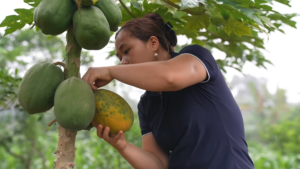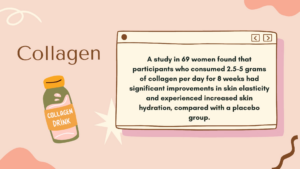Biohacking: This term, derived from the combination of biology and hacking, is changing the game of personalized nutrition as it utilizes data and scientific advancements to achieve the best results in health. Acknowledging that there is no one-size-fits-all diet that suits everyone, it is best to individualize and personalize diet and lifestyle choices that fit one’s unique genetic makeup, metabolism, and nutritional needs conducive to optimal health. These techniques help individuals biohack their health by gaining new understandings of their bodies so they can make smart decisions to improve overall wellness and longevity.
Common deviation in Genomic Data
To Biohack your diet, you need to understand how genetic variability is essential for understanding what each individual requires nutritionally. With the rise of at-home genetic testing and analysis, came the ability for a person to learn things about their body such as how they metabolize nutrients, what diseases they are predisposed to, etc. This knowledge, in turn, can help produce personal dietary plans not only optimized for nutrient intake but also metabolically balanced and genetically mitigated.
Personalisation of Nutrition- Nutrigenomics
Nutrigenomics is the study of the interaction genes have with diets and the potential of providing personalized interventions to reflect the impact of dietary choices on gene expression and specific health outcomes. Through examination of the genetic markers reflecting nutrient metabolism, inflammation, and oxidative stress, individuals can specifically alter their diets to promote maximum gene function, which in turn seems to reduce the risk for chronic diseases. With nutrigenomics, biohackers can follow diets loaded with nutrients that modulate gene expression in a way conducive to helping us live longer.
Biomarkers and Data Tracking
Biohacking – Biohacking is: the practice of monitoring biological data to manage one’s health, a broad-based activity driven by self-quantifiers, sleep trackers, and data miners, hackers within the mainstream. Blood sugar, cholesterol, inflammatory markers, and gut microbiome composition are all biomarkers, and they can provide us with useful feedback on how the body is responding to certain diets and nutrition strategies. By simply wearing a device that can track their data, and syncing it with other health-tracking apps, biohackers can monitor their physiology in real-time and tailor their diets and lifestyles in response, in an attempt to enhance both their performance and health.
Personalized Nutrition Plans
This allows biohackers to develop individually appropriate diets that are guided by genetic data, and identify clinically relevant biomarkers to meet their health and wellness goals. This can include personalized macronutrient ratios, micronutrient-dense foods, targeted supplementation, and meal timing strategies to cater to specific needs around energy levels, cognition, athletic performance, and general well-being. Biohackers adjust these plans periodically according to analyses of their ongoing data and experimentation.
Functional Food & Nutritional Supplements
Biohacking supports the concept of functional foods and micronutrients that can affect health beyond the basic requirements of nutrition. Probiotics, prebiotics, and antioxidant-rich foods are functional foods that aid with general gut health, immune function, and cell repair. Based on biomarker analysis, nutritional supplements (vitamins, minerals, and phytonutrients) are included on purpose to compensate for certain deficiencies or health issues thereby optimizing nutrient intake and metabolism.
Living Better and Living Longer
Biohacking also delves outside of the realm of diet into lifestyle optimization, which includes just about everything else that contributes to extended lifespan and overall healthspan. This can be anything from stress management, regular sleep, and exercise plans to mindfulness. Using personalized nutrition in conjunction with holistic lifestyle factors, biohackers can get to look like their boss [4, 5], lhave evel-longevity, an be the most rad person in their nursing home!!
Considerations in Ethicality and Sustainability
Biohacking to Guide Personalized NutritionBiohacking has revealed a new frontier in precision medicine which is incredibly exciting, but this is not without ethical concerns such as privacy of genetic data, informed consent for genetic testing, and responsible interpretation of health information. Biohacking can be done sustainably by selecting environmentally friendly foods, choosing ethically sourced ingredients, and decreasing the ecological footprint of biohacking, thus contributing to harmony with respect to health optimization through global sustainability goals.
Conclusion
Individuals have already hacked their diets to help themselves and others be as optimized as possible – proving that biohacking may be the future of personalized nutrition and that the power of nutrition data in their own hands is finally turning up health outcomes a notch or 10. Utilizing gene science through genetic variability, nutrigenomics, biomarker tracking, and personalized nutrition plans, the biohacker can unlock their genetic potential, reduce the risks of those blossoms, and of course take off and fly towards their ongoing health goals. Biohacking Technology is Advancing This is great news, because as technology continues to progress, biohacking has the potential to be the future of health care, and allow individuals to hack their lives away for a longer, healthier life.








